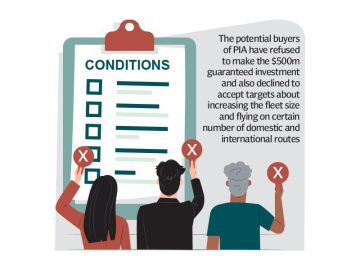The Federal Trade Commission has obtained a temporary restraining order with asset freeze from the U.S. District Court for the Central District of California against a company that a Miami attorney has had in his sights for two years.
In the Federal Trade Commission v. Ascend Capventures Inc., the FTC filed a lawsuit Sept 25 against a company that allegedly falsely claimed to have “cutting-edge” AI-powered tools that would help consumers quickly earn thousands of dollars in passive income a month by opening online storefronts.
But customers allege they soon found themselves shut down, broke, and the recipients of frightening threats and spam emails that froze their computers and cell phones.
“I started getting my own personal cyber attack,” attorney Nima Tahmassebi of NT Legal in Miami said. “My personal phone, my cell phone, which is not publicly listed, received over 100 spam text messages to stuff I never signed up for.”
In the FTC complaint, Tahmassebi said he contacted Ascend regarding a debt collection for his client Branden Lathan.
Lathan said he’d been bombarded with 25,000 spam emails after contacting Ascend.
Tahmassebi reported a similar experience, after his contact with the company.
“The next day, I got 632 spam texts to my personal cell, and 728 spam emails to my work address. And two days after that, 500 spam texts and 335 spam emails. It went on like this every day, and I ultimately told the FTC about it,” Tahmassebi claimed.
“Everything that I outlined in my declaration was part of what the judge cited in her order granting the temporary restraining order to halt Ascend from doing any further business activities,” Tahmassebi added. “They found the evidence in my declaration compelling enough to grant that motion.”
Jonathan D. Herpy Sr., left, of Hart David Carson. Courtesy photo
Ascend CapVentures’ outside corporate counsel, attorney Jonathan D. Herpy of Hart David Carson in Chicago, denied that Ascend was responsible for the communications, and defended his client’s actions as set forth in the FTC complaint.
“Our opinion, from a corporate counsel standpoint, is that Ascend takes all of these regulatory matters very seriously and is committed to full compliance with the FTC guidelines,” Herpy said. “Many of the issues that were raised in the complaint are based primarily on misunderstandings or misleading information that we believe they obtained, likely through influencers, including competitors, of Ascend in a very highly competitive industry.”
Read the FTC Complaint
31 Complainants
According to the complaint, the company has defrauded consumers of at least $25 million.
Tahmassebi was at the forefront of the investigation on behalf of dozens of clients across the U.S., whom he found through a Facebook group formed by disgruntled Ascend customers who claimed they were trying to warn others via online reviews of their negative experiences.
“After speaking to all these people in the group, I went from having two clients to 31 clients, in a span of a few weeks of talking to these people,” Tahmassebi said. “At that point, I had the numbers now to initiate a mass arbitration.”
Tahmassebi’s clients alleged they were sent threatening text messages and emails, attempting to coerce and intimidate them into removing negative reviews about the company after providing tens of thousands of dollars to Ascend and having their stores suspended with no recourse.
Working With the FTC
The Miami attorney and his clients decided to suspend the mass arbitration proceedings and assist the FTC in their investigation in hopes of obtaining some financial recovery.
“These are people whose livelihoods were completely turned upside down directly due to the actions of Ascend,” Tahmassebi claimed.
The attorney said he thinks many more customers have been affected and have given up on recovering their losses because they can not afford to sue Ascend.
“Those are the people who I want to know that [the FTC action] has happened so that they have a way to submit their claims as creditors to the FTC-appointed receiver and have some chance of getting some funds back when this whole thing plays out over the next year or so,” Tahmassebi said.
In the FTC suit, Herpy said Ascend’s counsel is Karl Kronenberger of San Francisco-based Kronenberger Rosenfeld, who did not return requests for comment.
“All we can really say now is that Ascend very much looks forward to showing the industry that they have done right by their clients and to work very closely with the FTC to hopefully put this matter to bed,” Herpy said.
According to the FTC’s complaint, perpetrators charge consumers thousands to start online stores on e-commerce platforms such as Amazon, Walmart, Etsy and TikTok. Customers told the FTC the company also required them to spend thousands more on inventory. But they alleged Ascend did not deliver on the advertised promises.
The complaint named a dozen additional defendants, as the FTC alleges the company changed names several times.
The court order applies not only to the entities but also to their principals, William Michael Basta and Jeremy Kenneth Leung, whose personal assets have been temporarily frozen as part of the proceedings.
FedReceiver’s Stephen J. Donell has been tasked with temporarily taking control of the companies’ operations and assets pending further proceedings. His responsibilities include ensuring the companies comply with the court’s orders, preserving records, and ultimately safeguarding the interests of both consumers and creditors.
Donell said he expects to be appointed permanent receiver in the near future.




